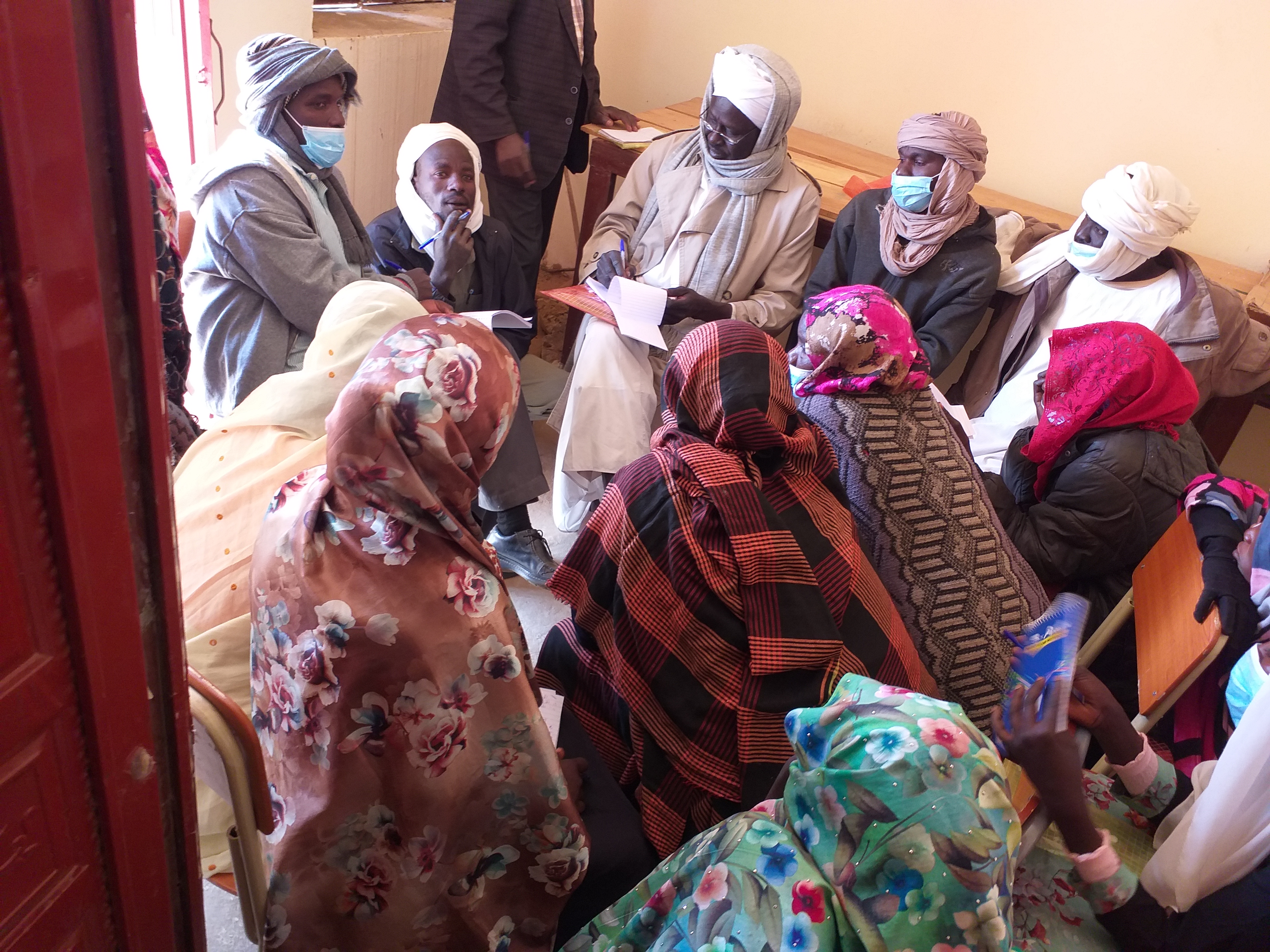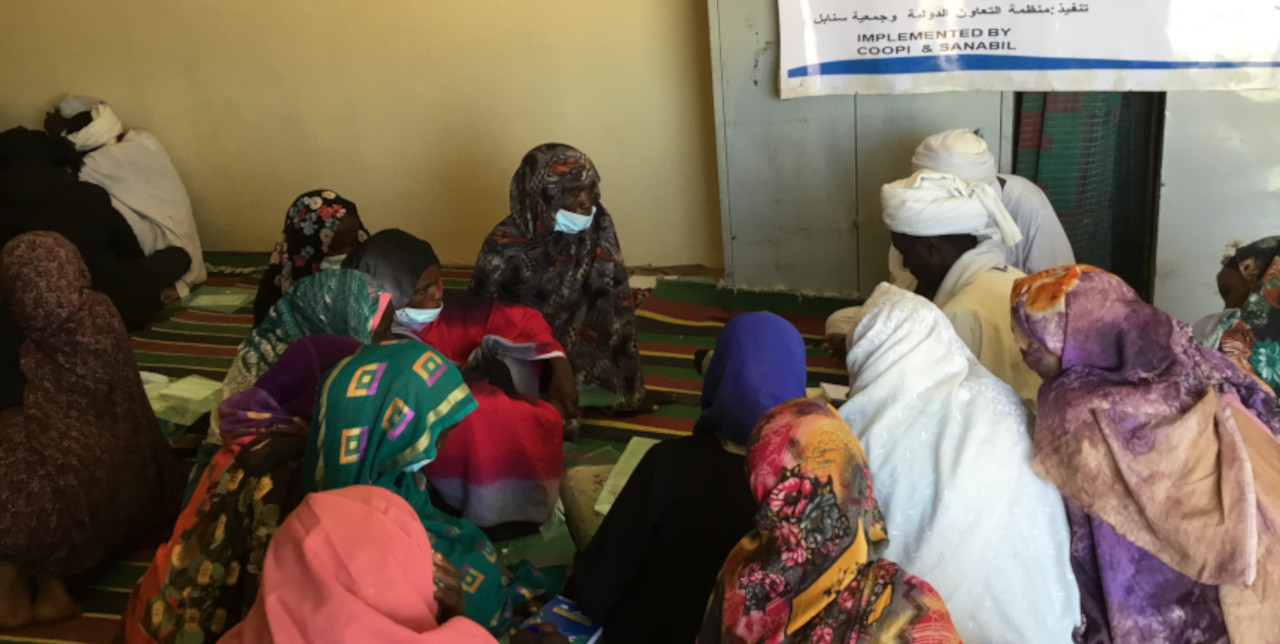02-04-2021 | di COOPI
Sudan. 30 Village Saving Loan Association groups to mitigate El Niño effects
Over the last couple of years, COOPI – Cooperazione Internazionale has created 30 Village Saving Loan Association (VSLA) groups in Umbaru and Kornoi locality to “Mitigate the effects of El Nino for Host and IDP communities in North Darfur State”, project funded by the European Union.
The VSLA methodology constitutes an important mechanism for people to create self-managed and self-capitalised saving groups that use members’ savings to lend to each other. VSLAs are comprised of between 10 and 25 members – of which, usually, more than 50% are female – and offer self-managed savings, insurance and credit services in urban slums and remote rural areas, being able to operate independently after 1-2 years.
The VSLAs are currently undergoing the last part of an intensive training program facilitated by COOPI, aimed at ensuring long-term sustainability and enhance the capacity of the members to not only provide loans to members but to use the savings of the group to establish small income generating activities.

As part of this trajectory, COOPI organised a three-day workshop specifically on Income Generating Activities for selected members from each of the 30 VSLA in three areas (Meski, Kerfu and Orshi). The training was facilitated by an external expert supported by COOPI staff and received very well by the participants.
VSLAs have transformed marginalized communities worldwide. They enable community members to manage household cash flow, build a capital base, rebuild solidarity and trust, and work collaboratively on income generating projects which cannot be undertaken by one person only, while creating value-added opportunities benefitting all members of the group and, sometimes, even the broader community.
The aim of “Mitigate the effects of El Nino for Host and IDP communities in North Darfur State” is to strengthen sustainable and alternative livelihoods and assist in enhancing the capacities of pastoralists and farmer households to sustainably produce and access food in North Darfur.




 Sudan
Sudan